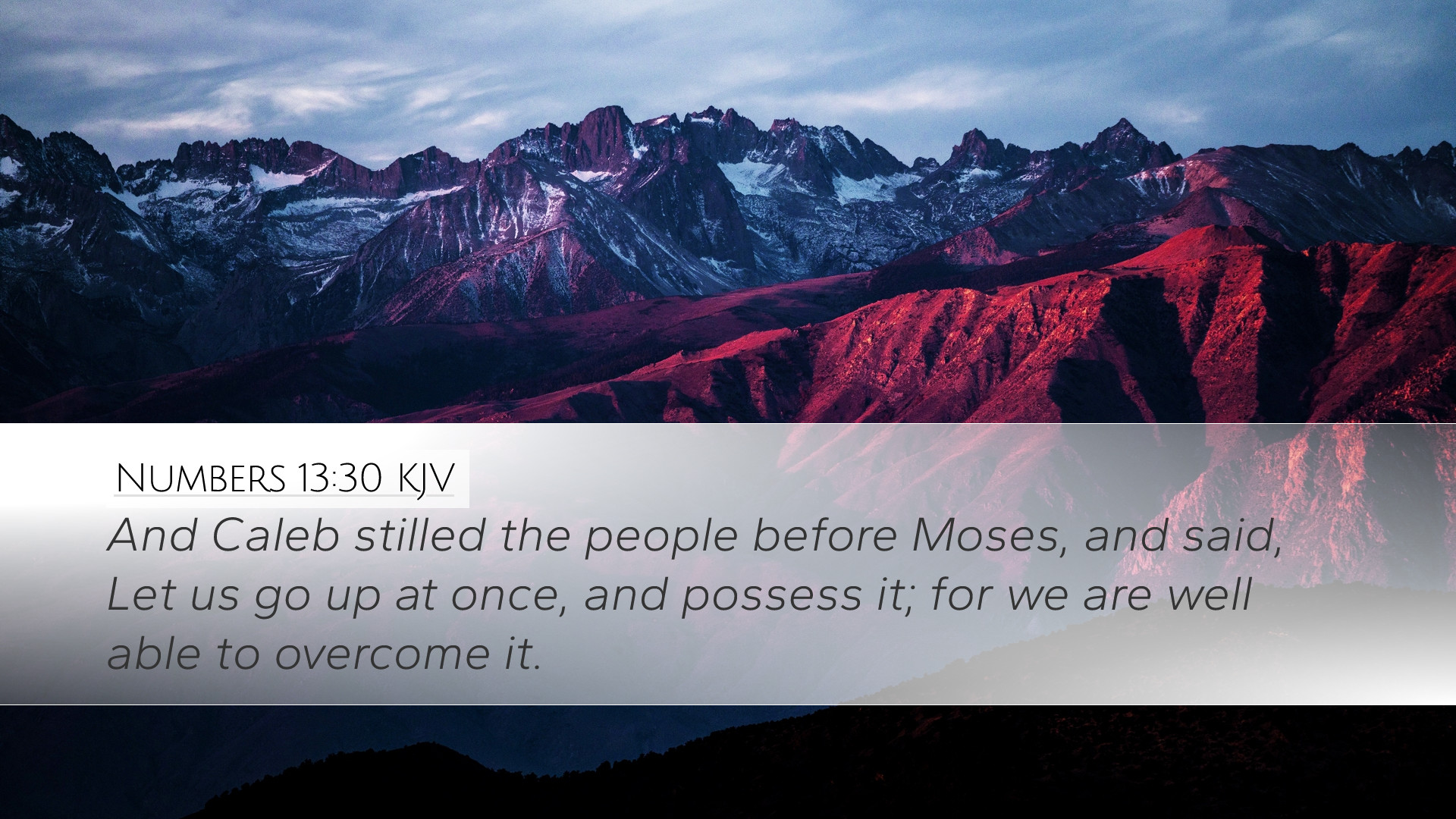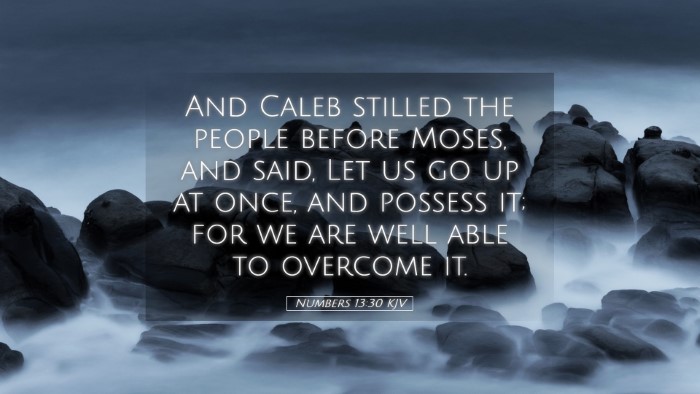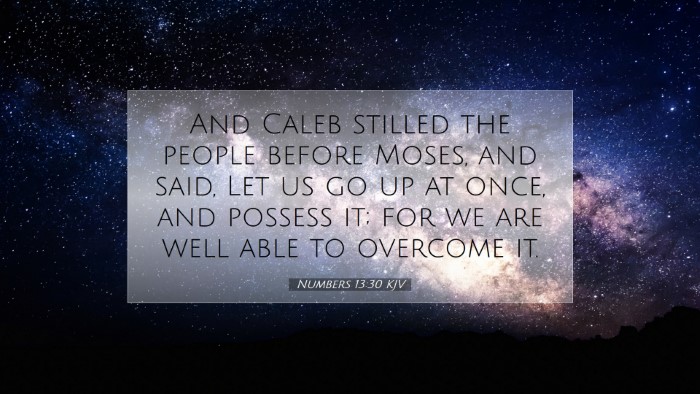Commentary on Numbers 13:30
Verse Context: Numbers 13:30 states, “And Caleb stilled the people before Moses, and said, Let us go up at once, and possess it; for we are well able to overcome it.” This verse captures Caleb's unwavering faith amidst the negative report of the other spies regarding the land of Canaan.
Introduction
This passage is pivotal in the narrative of Israel's journey to the Promised Land. Caleb's courage stands in stark contrast to the fear and doubt expressed by the other spies. His declaration encapsulates a faith-filled response that serves as a lesson for believers regarding trust in God’s promises.
Insights from Commentators
Matthew Henry
Matthew Henry emphasizes the importance of Caleb’s character in this account. He notes that Caleb, being from the tribe of Judah, symbolizes strength and faithfulness. Henry points out that Caleb’s plea to ‘go up at once’ reflects not only his confidence in God's ability to deliver but also his eagerness to fulfill God's command. His boldness serves as a reminder that faith often requires taking immediate action rather than waiting for favorable circumstances.
Albert Barnes
Albert Barnes expands on the idea of possessing the land as a vital theme throughout the Scriptures. He highlights that Caleb’s exhortation to the Israelites demonstrates a clear understanding of God's promise. Barnes suggests that Caleb operates under the assurance of divine support, which should encourage believers to embrace the challenges they face in life through faith. Furthermore, Barnes identifies Caleb’s leadership qualities, noting that his ability to quell the dissenting voices among the people is indicative of his faith and determination.
Adam Clarke
Adam Clarke delves into the linguistic aspects of the text. He observes that the term “stilled” implies an act of calming or reassuring, which is significant in a moment of fear and uncertainty. Clarke argues that this response is indicative of true leadership, one that is grounded in faith. He also points out that Caleb’s declaration, “we are well able to overcome it,” is not merely an expression of optimism but a profound declaration of faith empowered by the knowledge of God’s past deliverance. This reflects a theological perspective that emphasizes God’s faithfulness and the necessity of placing one’s trust in His promises.
Theological Reflections
-
Faith in God’s Promises: The verse serves to remind contemporary readers that faith requires a recognition of God’s promises, manifest in both spiritual and tangible forms.
-
Courage in Leadership: Caleb’s bold declaration encourages modern leaders to foster an environment where faith can thrive, urging their congregations to step forward in trust, even when circumstances appear daunting.
-
The Role of Community: The episode illustrates the power of individual faith within a community. Caleb’s courage is meant to inspire collective action, emphasizing the impact that one faithful believer can have in a larger group.
Application for Today’s Believers
As we reflect on Caleb’s stance, believers today are prompted to assess their own responses to challenges. Do we lean toward fear, as the other spies did, or do we adopt Caleb's attitude of faith? In times of uncertainty and fear, Christians are called to remember God's past faithfulness, affirming that, like Caleb, we can face our giants with confidence in God’s power.
Conclusion
Numbers 13:30 serves as an encouraging testament to the strength of faith and the importance of leadership in guiding a community through trials. Caleb’s unwavering belief in God’s promise not only fortified his own heart but has echoed through generations as a shining example of trust in divine sovereignty. It challenges us all to rise above our fears and possess the promises laid before us.


